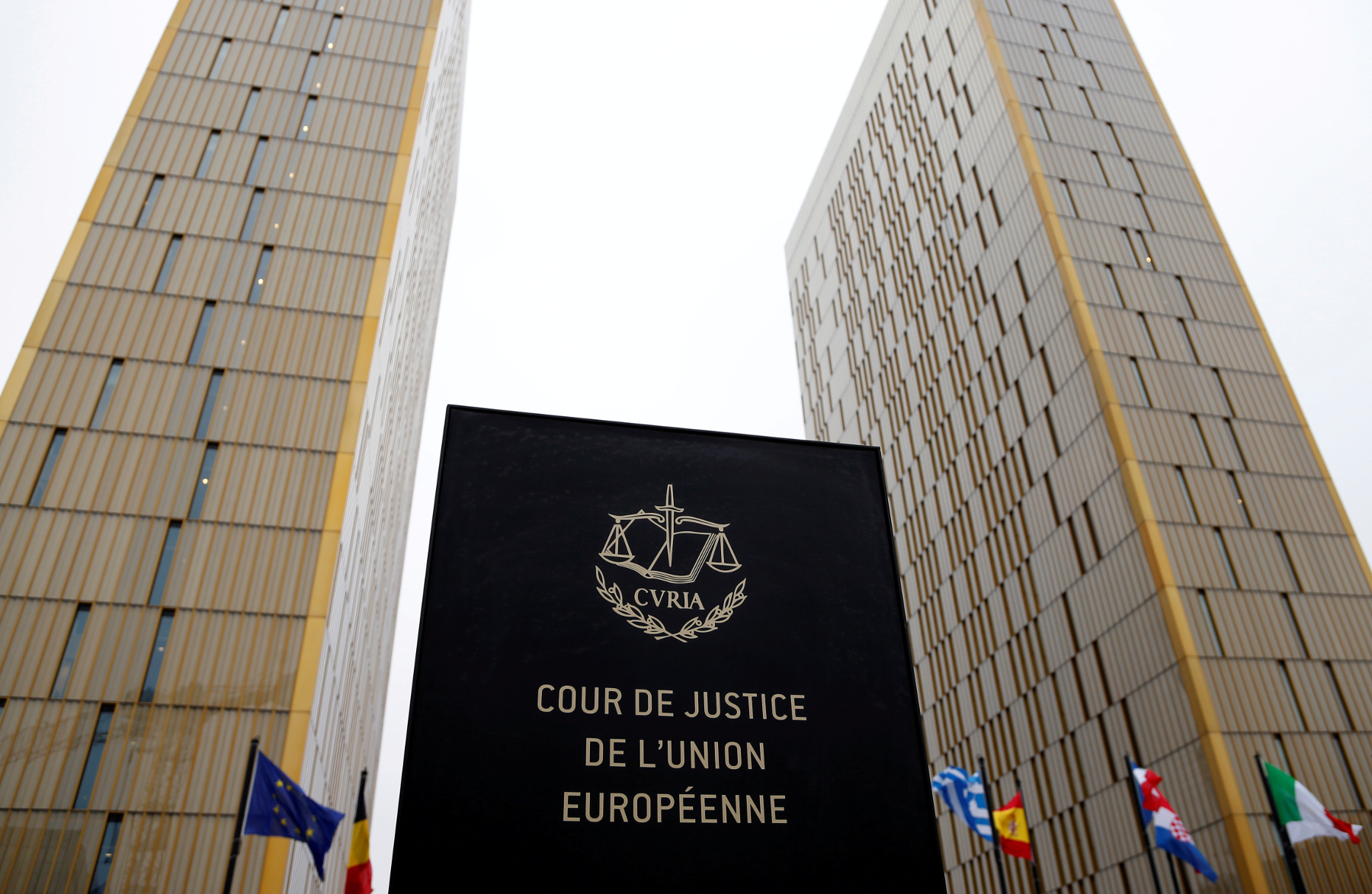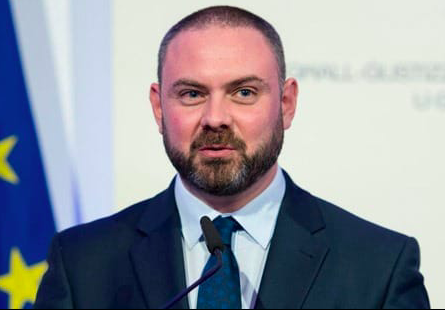Justice minister Owen Bonnici should have sought advice on how to defend the Maltese press from vexatious foreign lawsuits and not to make a case against the amendments proposed by the opposition, EU law and Private International Law expert Justin Borg-Barthet told The Shift News.
On Monday, the government voted down amendments proposed by the opposition to protect journalists against foreign lawsuits, known as SLAPP, intended to silence critics by crippling them financially.
Government insisted that such a law would be in breach of EU law and Bonnici said that after seeking legal advice from four legal experts, there was no need for further protection since existing laws already protect Maltese citizens against judgements from non-EU countries, as long as they refuse to participate in the court proceedings.
Borg-Barthet from the Centre for Private International Law at the University of Aberdeen said government got sound, albeit imperfect, unbalanced and incomplete, answers to the wrong question.
The minister, he said, “should have sought advice on how to defend the Maltese press from vexatious suits. Given his documented collusion in Henley and Partners’ SLAPP suits, it’s hardly surprising that he did the reverse. He sought advice on how to strike down Jason Azzopardi’s proposal.”
He added that if Bonnici is serious about defending the press the first thing he should do is to commission a study on how Maltese procedural law could be deployed to provide robust protections against enforcement of judgments from third countries.
“Secondly, he could explore defensive mechanisms whereby any entity which does business in Malta and institutes SLAPP suits in a non-EU state against the Maltese press would be subject to, for example, triple-damages. In other words, if a Maltese bank, such as Pilatus Bank, institutes vexatious proceedings in Arizona demanding damages of $1 million, Maltese law could require Pilatus to pay the Maltese entity $3 million.”
Moreover, Borg-Barthet said, Bonnici should commit to adopting carefully framed legislation which would prevent enforcement of ruinous libel suits within the European judicial area.
“In case of doubt, he should signal a willingness to defend that legislation before the EU Commission and, if necessary, the Court of Justice of the European Union. This defence could be framed on the grounds that the legislation complies with Malta’s obligation faithfully to apply EU law in conformity with EU human rights law,” Borg-Barthet said.
Government’s apparent refusal to defend journalists jars with its willingness to challenge EU directives and face court proceedings to defend the rights of hunters and trappers. Quizzed about this on Tuesday, Bonnici dismissed the idea and said there is no comparison between the two.
Borg-Barthet said that Bonnici should use his position as an EU legislator to amend EU law, such as the Brussels I Regulation, with a view to preventing SLAPP suits within the EU.
“The Maltese government is not merely a passive subject of EU law, as minister Bonnici appears eager to suggest. It is a legislator with considerable powers. Those powers should be used to defend unequivocally the fundamental rights and freedoms of the Maltese press and public,” he said.
ICT and Media Law expert Antonio Ghio concurred and said that if government truly believes in freedom of speech and the importance of protecting journalists from SLAPP, “it should have encouraged a wider discussion on how the wording proposed should be tweaked and focused on the public policy aspect of freedom of speech and not a proposed text which could imply exclusivity of jurisdiction in Malta”
If need be, he said, Malta should defend the legislation in front of the EU’s Court of Justice.

Lawyers said government could defend anti-SLAPP legislation in front of the EU’s Court of Justice just like it does with hunting and trapping legislation
But government clearly does not put freedom of expression on the same level as hunting and trapping, Ghio, a lecturer in Information Policy and Governance at the University of Malta said.
Insisting that anti-SLAPP law centres on public policy, Ghio said government’s refusal to introduce further protection for journalists could lead to Maltese journalists being sued in EU jurisdictions which do not abide by the same rules, such as the single publication rule “or multiple actions for the same article, by way of example”.
Legal advice used to oppose opposition’s amendments
During Monday’s parliamentary meeting Bonnici said government based its decision on advice given by three Maltese lawyers and international law firm Bird & Bird. The following day Maltese MEP David Casa called on the European Commission to act urgently and introduce EU anti-SLAPP legislation.
Bonnici said that legal experts, including Ian Refalo, Paul Cauchi and the Attorney General Peter Grech, came to the same conclusion and agreed that no further protection for journalists was needed.
But Borg-Barthet said none of the lawyers provided a balanced view, carefully crafted with reference to relevant counter-arguments, as is ordinarily the norm when lawyers provide advice which may be relied upon.
Following yesterday's govt vote against anti #SLAPP legislation granting press freedom, I have written to First Vice-President @TimmermansEU reiterating my call for the EU to intervene and protect investigative journalism.@AzzopardiJason @PNmalta https://t.co/r0XRQ9Z6gc
— David Casa (@DavidCasaMEP) April 10, 2018
“Instead, the opinions are – with varying degrees of competence – drafted with a view to enabling the minister to oppose the (opposition’s) Bill unequivocally. It is clear that the lawyers understood that their brief was to find no merit in the proposed Bill. Whether this was due to an explicit instruction, or merely understood implicitly with reference to notorious cases of government collusion in Henley & Partners’ SLAPP suits is less clear.”
Acknowledging that the opposition’s proposals piloted by Jason Azzopardi address a difficult legal problem requiring careful analysis, Borg-Barthet said the framing of the proposal is problematic in relation to SLAPP suits initiated in the courts of an EU/EFTA state.
“As noted in each of the opinions, the Brussels I Regulation and Lugano Convention offer member-states little room for unilateral rule-making in relevant cases. As also noted by some of the lawyers, however, EU law does not preclude unilateral rule-making in respect of third countries,” Borg-Barthet said.
He said that none of the legal opinions provides in depth consideration of the obligation to interpret secondary EU law in accordance with the EU Charter of Fundamental Rights or the European Convention on Human Rights.
“What the minister should have required of his advisers was consideration of the extent to which the Brussels I Regulation could be deployed to undermine rights guaranteed in the EU Charter of Fundamental Rights. It is plain that it cannot, in principle. SLAPP suits against Maltese media houses are, without a shadow of a doubt, designed to limit the right to freedom of expression and the right to access to courts by imposing extortionate costs on litigation.”
Existing legislation not enough
On existing legislation which Bonnici claimed already protects journalists as long as they do not defend themselves in third country courts, Borg-Barthet said this “deliberately or otherwise, entirely misses the point.”
The proposed amendments would provide the press with an unequivocal defence against the enforcement of a judgment from a non-EU/EFTA state and Borg-Barthet said “that certainty is what has been missing to date.
The legal opinions, he said, “rely on the provisions of the Code of Organisation and Civil Procedure regulating a situation in which enforcement of a foreign judgment where the defendant did not submit to the jurisdiction of the foreign court. The opinions appear to assume that foreign courts have no means to compel a defendant to appear, or to punish them for not appearing. This is an absurd assumption. By way of example, the lawyers could not possibly have encyclopaedic knowledge of the relevant procedural laws of fifty US states. Nor could they realistically predict how those laws could change.”
The purpose of crafting defences to enforcement is also to deter abusive behaviour by rich organisations such as Pilatus Bank and Henley and Partners, regardless of how foreign law is framed, or could be framed, Borg-Barthet added.













